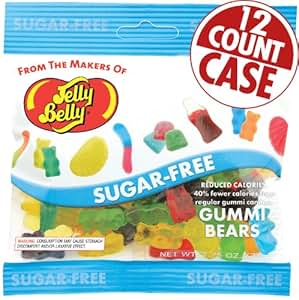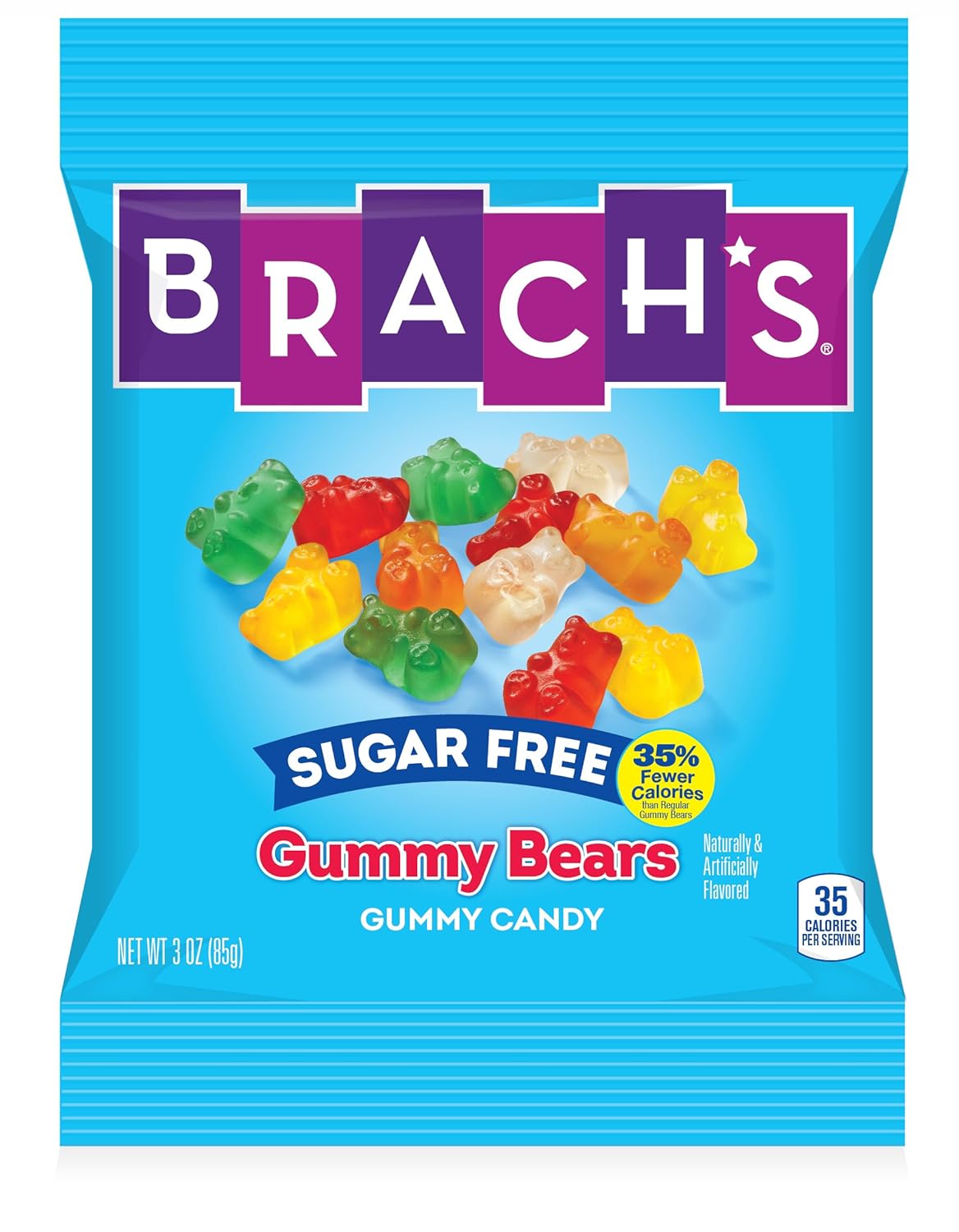In a world increasingly focused on health and wellness, sugar-free products have carved out a niche for themselves, especially sweets like gummy bears. Known for being a low-calorie alternative, these sugarless delights promise guilt-free indulgence. However, one brand, in particular, Haribo’s Sugar-Free Gummy Bears, has garnered attention not just for their taste but for some rather alarming user experiences shared in Amazon reviews. This report will unpack the phenomenon surrounding these notorious candies, featuring reviews that range from humorous to horrifying, and will offer insights into the implications of indulging in sugar-free treats.

amazon reviews gummy bears sugar free
The Allure of Sugar-Free Treats
Sugar-free gummy bears appeal to various audiences—from health-conscious individuals looking to manage their weight to those adhering to ketogenic diets. The appeal is evident; with a taste that often matches their sugary counterparts, they present an enticing option for candy lovers. A recent review on Amazon gushed, “First of all, for taste I would rate these a 5. So good. Soft, true-to-taste fruit flavors like the sugar variety…I was a happy camper.” This review exemplifies the initial excitement many feel when trying sugar-free options, as is echoed by nutritionists and dietitians emphasizing moderation in sugary treats. As celebrity nutritionist Lisa Stollman states, “Sugar-free options can be beneficial in moderation, allowing individuals to enjoy sweets without excessive calories.”

amazon reviews gummy bears sugar free
The Downside: A Bitter Aftertaste
Unfortunately, the fascination with these sugar-free delights often turns sour, with numerous reviews painting a grim picture. One infamous reviewer named their experience “St. Diarrhea’s Day Massacre,” illustrating the drastic bodily reactions many have reported after indulging in these candies. “I had never felt such simultaneous relief and anguish in my life,” lamented one customer who humorously yet brutally detailed an accident involving their bathroom usage post-consumption.
The primary ingredient behind these gastrointestinal tragedies is maltitol, a sugar alcohol that, while lower in calories than sugar, carries the potential for causing significant digestive distress. Nutrition expert Dr. James F. Balch warns, “Consuming large amounts of maltitol can lead to unpleasant side effects, particularly with people who have sensitive stomachs.” The warning labels and many user experiences affirm that moderation is crucial when dealing with sugar-free products.
Consumer Reactions and Cultural Impact
The narrative surrounding Haribo’s Sugar-Free Gummy Bears is not just about dietary concerns; it has sparked a wider cultural discussion. Their reviews have produced viral moments across social media platforms. Many users have taken to Reddit and other forums to share their experiences, some even turning to humor, with comments such as, “Could be used to torture information from terrorists.” The combination of shock and absurdity not only entertains but serves as a cautionary tale for sugar-free aficionados.
Experts Weigh In on Sugar-Free Products
Health professionals often find themselves embroiled in debates regarding sugar substitutes. Dr. Michael Greger, a well-known author and physician, points out that while sugar-free alternatives might fit into a balanced diet, it’s essential to consider the broader dietary patterns. “It’s important to encourage a diverse diet rich in whole foods rather than relying on sugar substitutes as staples,” he advises. This echoes the sentiments of many health gurus who fear that sugar substitutes could lead individuals to neglect nutritional values while living off processed snacks.
Balancing Enjoyment and Health
Despite the glaring red flags, there’s a positive narrative to the sugar-free gummy bear saga. Many users still reflect on their experiences positively, highlighting that, when consumed carefully, they can offer a sweet escape. Positive user reviews often stress the importance of enjoying treats like these in moderation, celebrating the ability to indulge without a significant caloric load. “I was cautious when trying them because there is a disclaimer,” noted one user, indicating that awareness and mindfulness can lead to enjoyable experiences.
The overall conversation encourages a healthy relationship with sweets. As wellness advocate Rachel Duffy puts it, “The key to self-love is balance. Enjoy your treats as part of a well-rounded diet, and listen to your body’s signals.” This is an essential reminder that an occasional treat can coexist with a healthy lifestyle if approached mindfully.
Conclusion: A Sweet Path Forward
The saga of Haribo’s Sugar-Free Gummy Bears serves as a larger commentary on our quest for healthier indulgences. While they may provide a guilty pleasure, it’s essential to consider ingredients like maltitol and the potential for intense digestive consequences. Like many treats, moderation is critical, as reiterated by numerous health experts and satisfied users alike. The sweetest path forward is one where we can indulge mindfully, appreciating the balance between our cravings and our overall well-being.
FAQs
- Why did Haribo discontinue sugar-free gummy bears?
Haribo faced backlash due to severe gastrointestinal issues reported by consumers, prompting them to reevaluate their product strategies. - What is the fake sugar in gummy bears?
The primary sweetener used in Haribo’s sugar-free gummy bears is maltitol, a sugar alcohol that can lead to digestive discomfort in some individuals. - What sweetener is in Haribo sugar-free gummy bears?
The sweetener in Haribo’s version is Lycasin, which is primarily comprised of maltitol. - Are fat-free gummy bears healthy?
While fat-free gummy bears may be lower in calories, they can still be high in sugar alcohols, which may not be entirely healthy in larger servings.